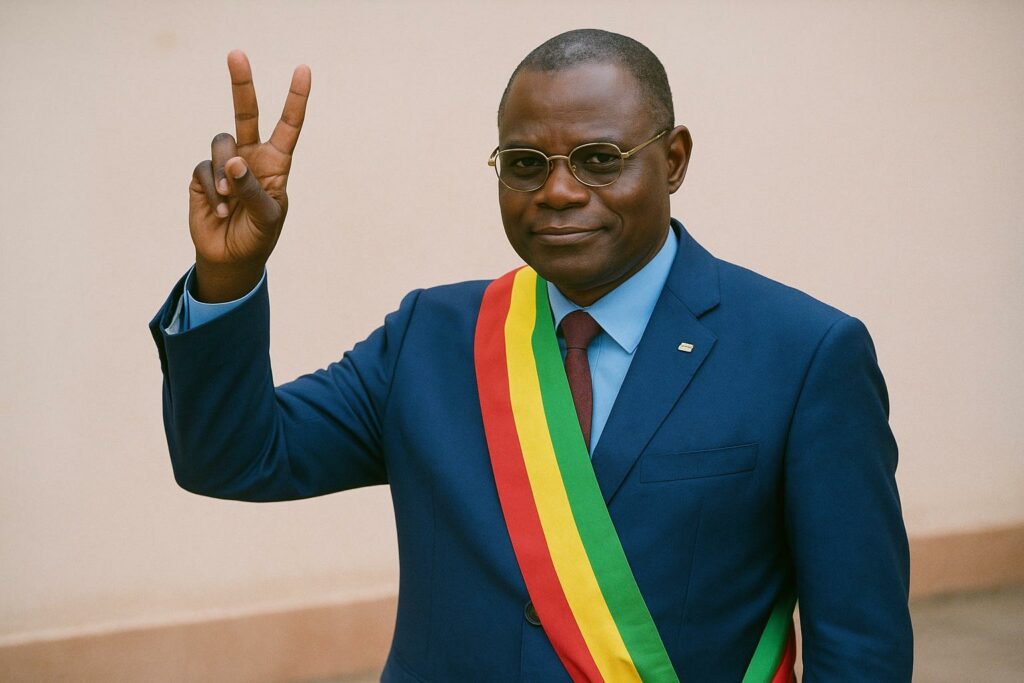An unexpected loss for the National Assembly
The sudden death of Joseph Mbossa, member of parliament for the single-seat constituency of Abala in the Nkeni-Alima department, cast a muted pall over Congo-Brazzaville’s political class. Parliamentary sources confirmed that the 62-year-old legislator passed away on 28 September at a Paris hospital, where he had been undergoing routine medical examinations according to family acquaintances. No official medical bulletin was released, yet several colleagues stressed that the illness had not been deemed life-threatening, amplifying the sense of shock that followed the announcement.
Within minutes of the news, the Assembly’s speaker, Isidore Mvouba, conveyed condolences to the bereaved family and highlighted “the dedication of a colleague who combined scientific rigour with political loyalty”. Flags at the Palais des Congrès were lowered to half-mast, while lawmakers across party lines observed a minute of silence, underscoring the respect commanded by the late engineer-planner.
A career rooted in hydro-planning and development
Born in 1961 in Nkeni-Alima, Joseph Mbossa earned a doctorate in hydro-electric resource planning, specialising in the optimisation of run-of-river plants along the Congo River basin. Former classmates at the École nationale supérieure des ingénieurs d’étude et de techniques d’aménagement remember “a methodical researcher capable of translating technical diagrams into policy language”. That aptitude would later define his public service trajectory.
Recruited into the civil service during the early 2000s, he oversaw the landmark Disarmament, Demobilisation and Reinsertion project from 2001 to 2010, a programme lauded by regional observers for facilitating the reintegration of nearly 10,000 former combatants (African Union monitoring reports). His management credentials prompted the government to entrust him with the Economic Diversification Support Project between 2013 and 2017, a period coinciding with the country’s concerted effort to reduce dependence on hydrocarbons.
Legislative stewardship and committee leadership
Elected to the National Assembly in July 2017 on the ticket of the Congolese Labour Party (PCT), Mbossa quickly emerged as a consensus builder. As chairman of the Plan, Territorial Development, Infrastructure and Local Development Committee, he shepherded cross-party consultations on the 2021 Spatial Planning Code and the recent infrastructure-financing framework, insisting on “measurable socioeconomic impact rather than rhetorical ambition”, as recalled by committee vice-chair Henri Boukadia.
Parliamentary minutes show that the Abala deputy maintained one of the highest attendance rates during plenary sessions. Constituents in the remote district credit him with securing budget lines for feeder-road upgrades and primary-school refurbishments, projects co-financed by the African Development Bank.
Strategic role within the PCT ahead of the December congress
Beyond the hemicycle, Mbossa was serving as permanent secretary for electoral affairs, territorial administration and urban planning within the PCT. In that capacity he acted as rapporteur-general for the preparatory committee of the party’s sixth ordinary congress, scheduled for December. Party insiders acknowledge that he had finalised a draft roadmap focusing on youth mobilisation, digital voter registration and policy coherence with the national Development Plan.
The PCT secretariat, in a statement released late Thursday, affirmed that “the organisational momentum towards December will be preserved in full fidelity to the methodological discipline exemplified by our late comrade”. Analysts view the message as an attempt to reassure both militants and international partners that the ruling formation remains structurally stable.
National reactions: unity and continuity
President Denis Sassou Nguesso dispatched a wreath to the family residence in Brazzaville and conveyed a personal message saluting a “patriot whose expertise has modernised our approach to territorial cohesion”. Opposition spokesperson Clément Miérassa described Mbossa as “a courteous adversary who listened before debating”. The tone of measured respect illustrates a rare moment of political convergence.
Civil-society groups, including the Federation of Engineers of Central Africa, advocated the establishment of a scholarship bearing his name to train young planners in renewable-energy integration, a proposal welcomed by the Ministry of Higher Education.
À retenir
Joseph Mbossa’s passing interrupts a career that bridged engineering precision and legislative pragmatism, at a juncture when the PCT is fine-tuning its agenda for the next five years. The vacancy in Abala will trigger a by-election within the constitutional timeframe, yet insiders suggest that continuity of the committee work he initiated remains assured through a team of technical advisers he put in place weeks prior to his departure for Paris.
Le point juridique & institutional
Under article 107 of the Constitution, a parliamentary seat becomes vacant upon death of the incumbent and must be filled within three months. The Constitutional Court is expected to notify the executive formally once the Assembly transmits the death certificate, paving the way for an electoral decree. From an administrative standpoint, Mbossa’s dual functions—as committee chair and PCT secretary—will be redistributed through internal votes presided over by the speaker and the party’s political bureau respectively, thereby maintaining institutional continuity.
On fiscal grounds, his demise halts his oversight role in the upcoming 2024 budget readings, an area observers consider critical given Congo-Brazzaville’s ongoing negotiations with international lenders. The Ministry of Finance, however, underlined that the macro-framework remains on schedule, signalling confidence that parliamentary scrutiny will proceed without substantial delay.

